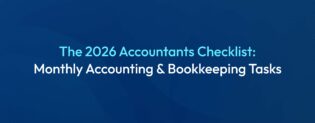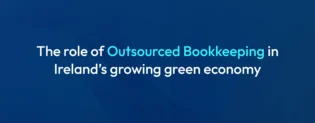
Running a business in Ireland comes with stringent tax and compliance requirements. Many SMEs suffer from fines, interest charges, and operational disruptions stemming from inadequate bookkeeping. Data entry errors, missed VAT deadlines, and overlooked expenses lead to unexpected tax bills and squeeze cash flow. Besides the financial burden, business owners waste crucial time reconciling accounts manually or correcting mistakes, taking focus away from growth.
Mistakes like delayed VAT returns can cost thousands in penalties per incident. Similarly, payroll errors with PAYE and PRSI trigger Revenue audits and fines. This blog explores how a skilled bookkeeper specialised in Irish SMEs prevents these costly issues while improving overall financial health.
Key Takeaways
- Accurate bookkeeping is crucial for business growth and financial stability in Ireland.
- Technology like Xero automates traditional manual bookkeeping tasks, saving time and reducing errors.
- Skilled bookkeepers maintain precise financial records, enabling smooth cash flow management and compliance with tax laws.
- Professional bookkeeping helps businesses avoid fines, meet tax deadlines, and benefit from eligible tax deductions.
- Bookkeepers provide valuable insights for better financial decisions and business expansion.
- They handle account reconciliations, accounts payable, and receivable efficiently to optimize cash flow.
- Outsourcing bookkeeping with experts like Outbooks offers tailored financial solutions and peace of mind.
What is Bookkeeping and why does it matter for Irish SMEs?
At its core, bookkeeping involves systematically recording all financial transactions, so businesses always know their accurate financial position.
For Irish SMEs:
- Critical for Compliance: With frequent changes in Revenue requirements, maintaining accurate VAT returns is mandatory, and bookkeeping ensures data readiness for tax submissions.
- Foundation for Decision-Making: Reliable bookkeeping provides sales data, expense tracking, and profit/loss analysis that informs strategy and financial planning.
- Audit Readiness: Well-kept records ease the audit process, reducing stress and liability.
Without proper bookkeeping, Irish businesses risk financial misstatements that may arise during Revenue inspections, triggering penalties or business interruptions.
See related post : How Can Hiring a Virtual Bookkeeper Impact Your Business?
Common Bookkeeping Mistakes and Their Impact on Irish Businesses
Bookkeeping is fundamental to the financial health of any business, especially for SMEs in Ireland. However, many businesses struggle with common errors that can lead to serious financial consequences, compliance breaches, and operational difficulties. Understanding these mistakes helps highlight why professional bookkeeping is vital.
Here are the key bookkeeping errors frequently encountered by Irish SMEs, followed by their impact:
Late or Incorrect VAT Returns
Irish VAT law requires businesses exceeding specific turnover thresholds – €42,500 for services, €85,000 for goods – to submit VAT returns on a bi-monthly basis. Many SMEs face challenges in meeting these obligations accurately and on time.
Consequences of Mistakes:
- Fines amounting to up to 10% of the VAT owed.
- Interest charges accruing on unresolved outstanding payments.
- Heightened scrutiny by Revenue, increasing the risk of audits.
Errors in VAT submissions not only lead to monetary penalties but can damage your business’s reputation and cash flow.
Overlooking Expense Claims
Many SMEs fail to claim legitimate business expenses due to poor bookkeeping or lack of awareness. Typical missed deductions include:
- Home office costs such as a proportional share of rent, electricity, and heating bills.
- Mileage and travel expenses related to business operations.
- Capital allowances on equipment or asset investments.
Impact:
- Paying more tax than necessary.
- Reduced profits, as deductible expenses are integral to accurate profit calculations.
Properly recording and identifying all claimable expenses ensures business owners optimise tax savings while remaining compliant.
Poor Cash Flow Management
Inadequate invoicing controls or failure to follow up on unpaid invoices can disrupt cash flow:
- Strained relationships with suppliers, leading to reduced credit terms or delayed deliveries.
- Insufficient cash available for daily operations, increasing reliance on overdrafts or loans.
Maintaining tight control over receivables and payables is essential to avoid liquidity crises that could threaten business sustainability.
Payroll Mistakes Affecting PAYE and PRSI
With the implementation of PAYE Modernisation, payroll accuracy is more scrutinised than ever.
Common payroll errors include:
- Underpayment or miscalculation of statutory deductions (PAYE, PRSI, USC).
- Late or incorrect submissions to Revenue.
- Employee dissatisfaction and potential employment disputes due to payment errors.
Such payroll mistakes can result in penalties and damage trust with employees, hampering business operations.
Manual Errors and Document Mismanagement
Many small businesses still rely on spreadsheets or paper-based systems that introduce risks:
- Lost or poorly stored receipts create challenges during audits.
- Data entry errors lead to inaccurate financial records.
- Excessive time spent reconciling records detracts from business growth activities.
Implementing reliable bookkeeping systems and document management processes helps mitigate these risks.
See related post : How To Find A Good Certified Bookkeeper In Ireland?
How a Skilled Bookkeeper Resolves These Issues
A skilled bookkeeper is essential for maintaining your business’s financial records with accuracy and full compliance to Irish laws and Revenue requirements. Their role extends beyond simple data entry, encompassing expert management of critical accounting functions that safeguard your business from costly errors and penalties.
This section breaks down their key responsibilities and the specific ways they resolve common bookkeeping challenges faced by Irish SMEs.
Maintaining Accurate and Compliant Financial Records
Accurate record-keeping is the cornerstone of good bookkeeping. A skilled bookkeeper ensures that every financial transaction – sales, purchases, payments, receipts – is promptly and correctly recorded using a systematic classification aligned with Irish accounting standards.
- Regularly update and reconcile financial data to reflect true financial status.
- Maintain organized ledgers to support audits and compliance reviews.
- Provide clear, detailed records for VAT returns and tax filings.
Benefits:
- Enables timely, reliable reporting.
- Reduces risk of errors that could trigger fines or audits.
- Builds a trustworthy financial foundation for business decisions.
Ensuring Timely VAT and Tax Compliance
Timely and accurate VAT and tax submissions are critical for avoiding penalties from the Irish Revenue Commissioners. Skilled bookkeepers:
- Monitor turnover against VAT registration thresholds (€42,500 for services; €85,000 for goods).
- Prepare VAT returns well ahead of statutory deadlines.
- Apply correct VAT rates and ensure all transaction codes comply with regulations.
- Liaise with Revenue if queries arise to resolve issues promptly.
Benefits:
- Avoids late filing penalties and interest charges.
- Minimizes risk of tax audits.
- Keeps business operations smooth and compliant.
Managing Payroll and PAYE Modernisation Compliance
Payroll processing under PAYE Modernisation requires strict accuracy and real-time reporting.
Bookkeepers:
- Maintain accurate payroll records including wages, statutory deductions (PAYE, PRSI, USC).
- Submit timely payroll reports directly to Revenue per real-time obligations.
- Adjust for changing tax credits and thresholds automatically.
- Reconcile payroll with bank payments and bookkeeping records.
Benefits:
- Ensures employees are paid correctly and on time.
- Prevents costly Revenue penalties related to payroll.
- Supports employee morale and compliance.
Maximising Legitimate Expense Claims
Identifying and claiming all allowable business expenses reduces your tax liability.
Professional bookkeepers:
- Keep detailed expense records, categorised correctly.
- Capture less obvious deductions like home office utilities, mileage, or capital allowances.
- Regularly review business transactions to ensure no allowable expenses are missed.
Benefits:
- Reduces taxable profits.
- Saves significant amounts in business costs.
- Enhances financial planning accuracy.
Proactive Cash Flow Management
Maintaining a healthy cash flow is vital for sustainability.
Bookkeepers contribute by:
- Monitoring accounts receivable and follow up on overdue payments.
- Managing accounts payable, negotiating payment terms when appropriate.
- Forecasting cash flow needs based on historical data and upcoming obligations.
- Advising on optimal timing for payments to suppliers and creditors.
Benefits:
- Avoids unnecessary overdrafts and interest charges.
- Improves supplier relationships through timely payments.
- Supports strategic financial decisions and business growth.
Leveraging Cloud Bookkeeping and Automation Tools
Modern bookkeepers utilise cloud-based accounting software, such as Xero, QuickBooks Online, and Sage, to:
- Automate bank feeds and transaction reconciliation.
- Use AI-powered tools to classify transactions and detect anomalies.
- Manage digital invoicing and receipt capture for efficiency.
- Provide real-time dashboards accessible from anywhere.
Benefits:
- Reduces manual data-entry errors.
- Saves time and administrative overhead.
- Provides instant financial insights empowering faster decisions.
Preparing Audit-Ready Records for Revenue Inspections
Revenue audits can be disruptive and stressful without organised documentation.
Bookkeepers prepare audit-ready files by:
- Maintaining thorough, logically arranged records.
- Keeping digital copies of all financial transactions, invoices, and receipts.
- Ensuring all reports and filings are consistent and accurate.
- Acting as the first point of contact during audits to facilitate smooth processes.
Benefits:
- Minimises audit duration and impact.
- Reduces risk of penalties or compliance issues.
- Provides peace of mind to business owners.
See related post : Mastering Bookkeeping: Key Aspects and Effective Tips for Accuracy
Technology and Automation: Transforming Irish Bookkeeping
Technology revolutionises bookkeeping by simplifying tasks and enhancing accuracy. The tools available today are specifically designed to meet the needs of Irish SMEs, offering automation and security features that manual bookkeeping simply cannot match.
The table below outlines some key bookkeeping technologies and their benefits.
| Technology Feature | Benefit | Example Software |
|---|---|---|
| Cloud Accounting | Enables access to accounting data anytime, anywhere | Xero, QuickBooks Online |
| Automated Bank Feeds | Reduces manual data entry errors and speeds reconciliation | Sage, Receipt Bank |
| Artificial Intelligence | Auto-classifies transactions and detects anomalies | Botkeeper, AutoEntry |
| Digital Document Management | Streamlines capturing and retrieving receipts and invoices | Hubdoc, Dext |
| GDPR Compliance | Ensures secure data storage and privacy | All major bookkeeping software |
These tools save SMEs time, reduce errors, and help maintain compliance with Irish tax laws efficiently.
New Irish Tax and Bookkeeping Regulations
Irish bookkeeping needs to adapt to new tax rules and filing requirements introduced to improve transparency and Revenue oversight.
Businesses should be particularly aware of:
- VAT Thresholds: €42,500 for services, €85,000 for goods taxable supplies in 2025.
- Bi-Monthly VAT Filing: Mandatory for most VAT-registered SMEs to enhance government cash flow monitoring.
- PAYE Modernisation: Real-time payroll reporting requirements ensure accurate deductions in each pay period.
- Increased Revenue Audits: Heightened scrutiny on record keeping requires meticulous bookkeeping practices.
Understanding and adhering to these requirements is crucial for Irish SMEs to avoid fines and disruptions.
See related post : The role of outsourced bookkeeping in Ireland’s growing green economy
How to Select a Skilled Bookkeeper: Irish SME Checklist
Choosing the right bookkeeper is crucial because mistakes can be costly. Use the criteria below to find someone well-suited for your specific business needs.
The table summarises key selection criteria with the reasons they matter:
| Selection Criteria | Why it Matters |
|---|---|
| Relevant Qualifications | ACA, ACCA, or certified bookkeeping skills ensure professionalism |
| Experience with Irish SMEs and Tax Law | Familiarity with VAT rules, PAYE modernisation, and local accounting standards |
| Software Proficiency | Expertise in Xero, QuickBooks, Sage for efficient bookkeeping |
| Proven Communication Skills | Clear financial reporting and advice tailored to your business |
| Client Testimonials or References | Validate reliability and service quality |
| Transparent Costs | Avoid surprises with upfront pricing and service agreements |
| GDPR and Data Security Compliance | Safeguarding your financial data legally |
Selecting a bookkeeper who ticks these boxes will save you time and money while reducing business risks.
Conclusion
A skilled bookkeeper is more than just a number-keeper; they are a financial partner invested in your business’s success. They help prevent costly fines through compliant bookkeeping, maximise tax savings by capturing legitimate expenses, improve cash flow management, and save you precious time by automating routine tasks.
In Ireland’s evolving tax landscape, hiring or outsourcing skilled bookkeeping services is a strategic decision that protects your business, frees your focus for growth, and enables smarter financial decisions, ultimately saving you both time and money.
FAQs about Skilled Bookkeeper
How does a skilled bookkeeper help prevent fines from Revenue?
What expenses can a bookkeeper identify for tax savings?
How can bookkeeping improve cash flow?
Which cloud bookkeeping software is best for Irish small businesses?
Is outsourcing bookkeeping cost-effective compared to in-house?
How does bookkeeping support PAYE and payroll compliance?
What qualifications should I look for in a skilled bookkeeper?
How often should I review bookkeeping for compliance?
Reliable Bookkeepers Guarantees Accurate Financial Records
Are you struggling with managing your business finances in Ireland? Hiring a reliable bookkeeper will be your best bet! Go no further than Outbooks for a trustworthy bookkeeper in Ireland. Here at Outbooks in Ireland, our experienced bookkeepers offer tailored solutions by knowing your unique business needs.
Outsourcing bookkeeping in Ireland is a smart choice for businesses, and Outbooks will be your reliable partner for success. With expert bookkeepers from Outbooks by your side in Ireland, growing your company to new heights will be a breeze.
Feel free to get in touch with Outbooks at info@outbooks.com or +353 212069255 to learn more about our reliable outsourcing bookkeeping and accounting solutions in Ireland today!
Bookkeeping Popular Posts
- Outsourcing – 4 models to offload work offshore
- 5 Reasons Firms Should Outsource Bookkeeping in Ireland
- Beyond the Ledger: Navigating Effective Bookkeeping Practices
- Bookkeeping Cleanup Made Simple: A Complete Step-by-Step Guide
- guide to choosing a bookkeeping partner in Ireland
- Bookkeeping Requirements: Preparation Guide for Business Services
- Bookkeeping Solutions – Sage VS Xero
Parul is a content specialist with expertise in accounting and bookkeeping. Her writing covers a wide range of accounting topics such as payroll, financial reporting and more. Her content is well-researched and she has a strong understanding of accounting terms and industry-specific terminologies. As a subject matter expert, she simplifies complex concepts into clear, practical insights, helping businesses with accurate tips and solutions to make informed decisions.











